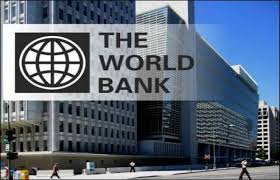The World Bank Group has tasked Nigeria to sustain its bold reforms for containing the impacts of the COVID-19 pandemic in order to attain inclusive economic growth.
Shubham Chaudhuri, World Bank Country Director for Nigeria said this on Thursday in Abuja, at the media conference on the presentation of the World Bank Nigeria Development Update (NDU) for December.
The report titled “Rising to the Challenge: Nigeria’s COVID response” takes stock on the recently implemented reforms and proposes policy options to mitigate the impact of COVID-19 and foster a resilient, sustainable and inclusive recovery.
Chaudhuri said Nigeria was at a critical historical juncture, with a choice to make.
“Nigeria can choose to break decisively from business-as-usual and rise to its considerable potential by sustaining the bold reforms that have been taken thus far and going even further and with an even greater sense of urgency to promote faster and more inclusive economic growth.”
According to him, the report projects that the economy could shrink up to four per cent in 2020 following the twin shocks of COVID-19 and low oil prices.
However, the pace of recovery in 2021 and beyond remains highly uncertain and subject to the pace of reforms.
He added that the pandemic was disproportionately affecting the poor and most vulnerable, women in particular.
Marco Hernandez, World Bank Lead Economist for Nigeria said that Nigeria could build on its reform momentum to contain the spread of COVID-19, stimulate the economy and enable the private sector to be the engine of growth and job creation.
“It can also redirect public spending from subsidies that benefit the rich towards investments in Nigeria’s people and youth in particular and lay foundations for a strong recovery to help make progress towards lifting 100 million people out of poverty.”
While presenting the report, he said that in the absence of measures to mitigate the impact of the crisis, the number of poor could increase by 15 to 20 million by 2022.
He also said that food insecurity had increased substantially and economic precarity was on the rise because unemployed workers had migrated to the low-productivity agricultural sector.
The NDU said that the crisis served as a wake-up call and acknowledged reforms undertaken by the government since April to mitigate the effects.
They include the efforts to harmonise exchange rates, introduce a market-based pricing mechanism for gasoline and adjustment of electricity tariffs to more cost-reflective levels.
It also acknowledges the reduction of non-essential expenditures and redirection of resources towards the COVID-19 response, while highlighting the greater transparency in the oil and gas sector and public debt as essential steps for a resilient recovery.
It also said that for the first time, Nigerian states responded to a fiscal shock in a coordinated manner, prioritising COVID-19 response expenditures and identifying financing source to avoid a rise in arrears.
“A modest recovery is projected for 2021, but Nigeria’s outlook is subject to a high degree of uncertainty.
“The pace of economic recovery next year is expected to be slow. Indeed, among global oil-producer economies, Nigeria is among the three least likely to post positive Gross Domestic Product (GDP) growth in 2021.
“GDP per capita is also projected to continue declining with productivity’s contribution to growth negative throughout this period.”
The NDU said that debt service could reduce fiscal flexibility but does not pose any significant threat in the short-term.
It added that public debt was projected to increase from 21.7 per cent of GDP in 2019 to 27.1 per cent in 2020, but would remain sustainable due to the expected recovery in oil prices and low-interest rates.
According to it, given the low revenue of Nigeria, the debt service-to-revenue is expected to reach 74.0 per cent by the end of 2020.
The report however proposed five policy areas that would help mitigate the effects of the crisis and support Nigeria’s recovery.
It said first, the domestic spread of COVID-19 should be managed until a vaccine is available for distribution, secondly, macroeconomic management to boost investor confidence should be enhanced.
The report also said that focus should be placed on safeguarding and mobilising revenues, reprioritising public spending to protect critical development expenditures and supporting economic activity and access to basic services and providing relief for poor and vulnerable communities. (NAN)


